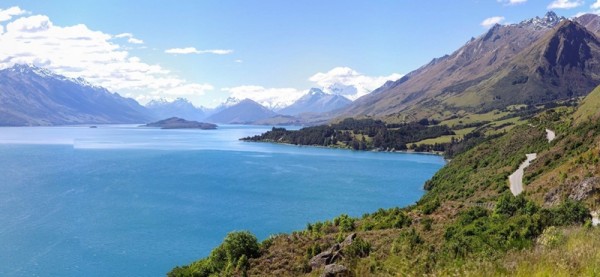Hinged Doors
Windows
Complementary
Hit enter to search or ESC to close
What are the best windows for New Zealand houses?
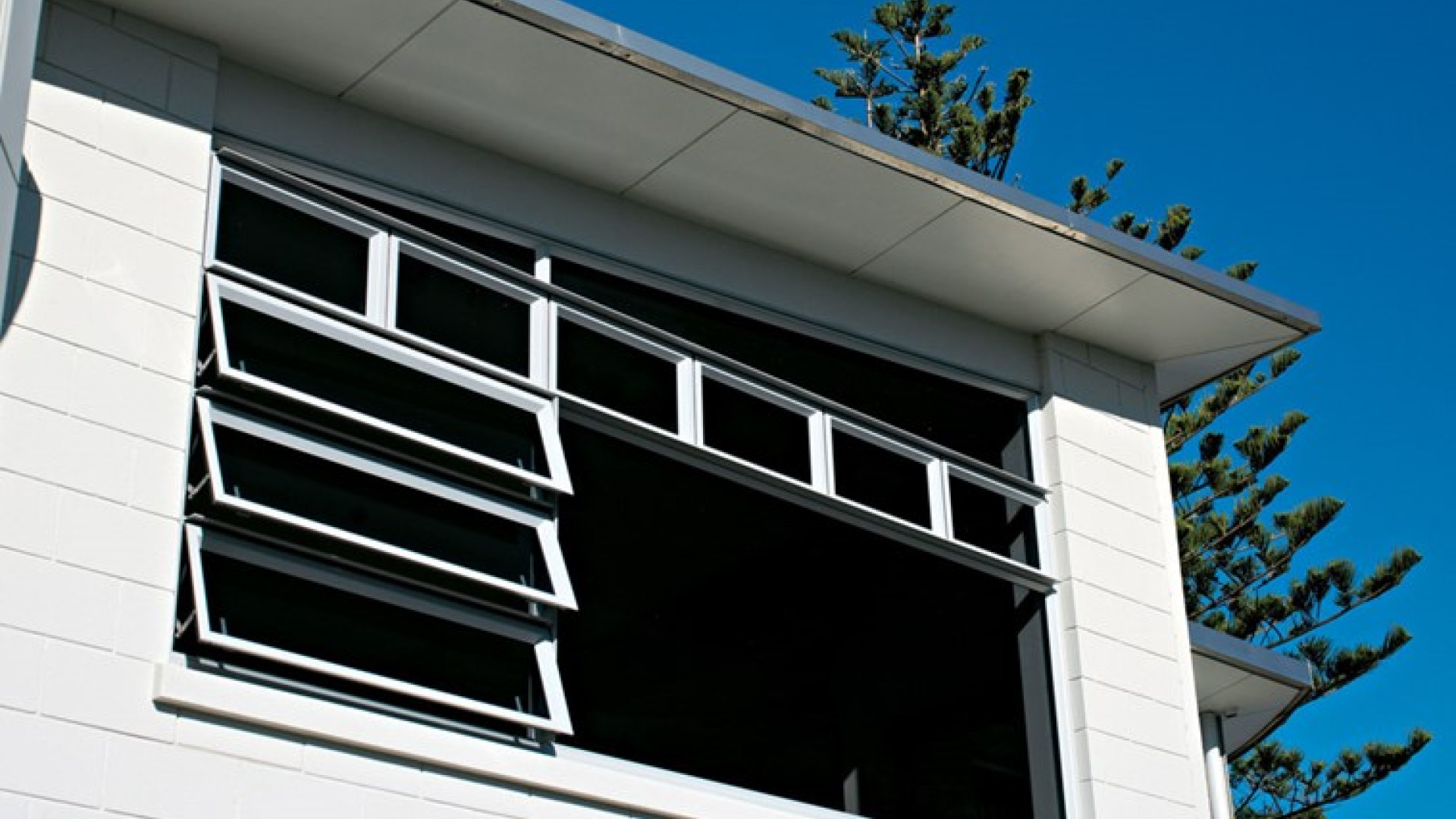
When building your own home in New Zealand, windows might not be the first thing you think about - but choosing them is one of the most important decisions you will make. Your windows will impact everything from heating and cooling to ventilation, moisture control and light. And when you get this decision right, you'll enjoy a high standard of comfort for many years to come.
So how exactly do you choose windows? What are the best for a New Zealand home? In this article we'll discuss:
- Understanding the impact of New Zealand's climate.
- Comparing window frame and glass options.
- Putting all of our information together to help you choose the best windows for you.
New Zealand's unique climate means your windows have a lot of work to do.
Part 1: Understanding New Zealand's climate
Let's talk about some of the problems New Zealand's climate can cause to a home via its windows.
Sun and UV
The NZ sun can be hot and harsh, particularly in summer. We all understand it is a part of living in this wonderful country and take steps to protect ourselves when we venture outside - sunscreen, long-sleeved tops, hats, etc. Your home has the same problem as we do: if sun exposure is not accounted for, it can cause problems. This will occur in two ways:
- Heat gain: When sunlight comes through your glass, so too does heat. What you may find is that the heat then can't escape - making your house very hot in summer and pushing up your air conditioning bills. Of course, on the flip side, heat will escape through the window area in the winter, pushing up your heating bills.
- Sun damage: The sun's harsh UV rays can fade furniture carpets, timber floors, rugs and more over time, causing long-lasting damage.
Poorly insulated windows can contribute a lot to cold air blowing into your property.
Cold air
Poorly insulated windows can contribute a lot to reducing the temperature in your home. If you have a leak in the windows, rubber seal, or around the window frame, this can be a big issue.
This is because hot air rises to the ceiling. Cold air, conversely, sinks. When hot air strikes the cold surface of the window, it cools down - thus sinking. When it does so, it pulls more hot air down towards the glass and cycles the cold air back around your room. Again the reverse happens in summer increasing the room temperature.
Condensation
Internal air moisture, of which condensation on glass is a symptom, can promote the growth of black mould and exacerbate respiratory ailments. Condensation forms on glass when moisture in the air cools down and condenses. It can actually form anywhere in your home, such as on walls and in bed sheets, it's just most noticeable on unprotected glass.
Condensation can be a huge problem in wetter parts of New Zealand - say, Auckland, where it gets very humid. Double glazing can reduce heat loss and risk of condensation forming on the window. Some windows also have optional passive ventilation for controlled air flow. This is discussed in Part 2.
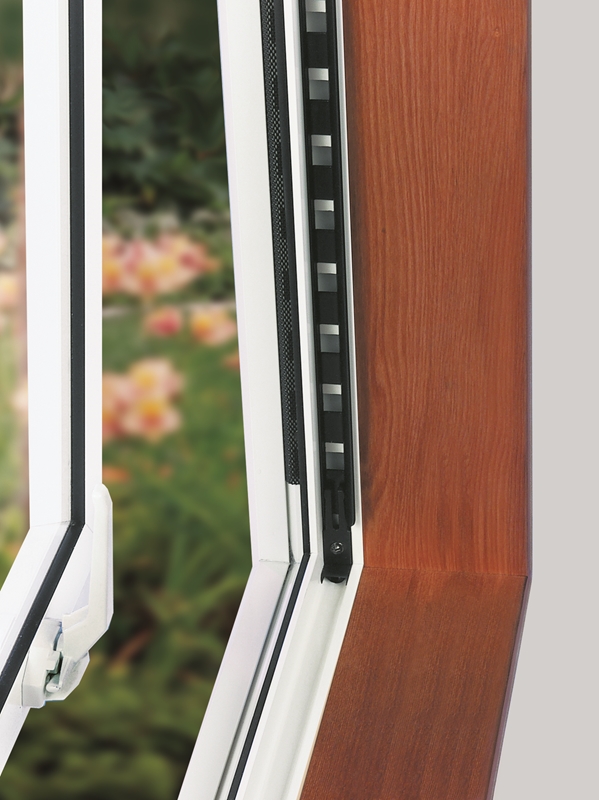
Passive ventilation allows rooms to ventilate while windows and doors are closed. The system is completely built into the window, hidden from view.
Wind zones
'Wind zones' are calculations of the wind load buildings can expect to be put under. Wind speed, you see, is another important consideration when choosing windows - the last thing you want is to submit plans to council only to have them declined. In addition, a lack of strength, or a poorly located window can result in it being constantly blown open or shut.
That said, just because you're in a high-wind-speed area of the country doesn't mean you can't have operable windows. But we'll come back to this soon. In the mean time, if you want to learn more about wind zones, have a read of our article "How to build for New Zealand wind zones".
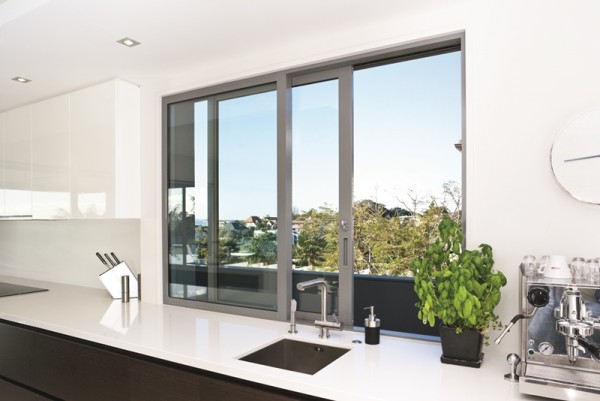
Using sliding windows on the windy sides of your home can prevent them being blown open or slamming shut
Part 2: Comparing window frame and glass options
Window frame materials
There are three common window frame materials used in New Zealand: aluminium, PVC and wood. Your choice of frame could have a big impact on the function, durability and performance of the entire unit. For example, a thermally broken aluminium frame can reduce heat loss by up to 20% (compared to a standard aluminium frame, according to Energywise).
At Altus Window Systems, we generally use aluminium for our windows and doors. Why?
- Durability: Aluminium is a hardy material that is resistant to wear and tear. It is also corrosion and water resistant, typically lasting many years without swelling, cracking or warping.
- Performance: Aluminium windows and doors are manufactured to high modern standards, and can come with features such as a thermal break.
- Maintenance: Thanks to its durability, aluminium requires little maintenance over its lifetime.
- Aesthetics: Aluminium is a modern, stylish material that can be finished in many different colours and styles.
- Sustainability: Aluminium is 100% recyclable.
Sizes and styles
There's a lot to consider when you're looking at the size and style of window you want in your new home. A bigger window will offer more of a view, but may let in more solar heat in summer. Windows that can't open will offer no ventilation benefits, but also won't blow open or shut on a very windy day.
To help you understand more how size and style can impact day to day function of the window, here are some ideas to think about:
- Placement: If chosen incorrectly, windows can blow open or closed in high winds, or impede the function of other features of your home (e.g. an adjacent sliding door). If you want a window that is easily opened but is on the prevailing winds side of the property, you might choose an awning or sliding window instead of a casement as these are less likely to slam.
- Ventilation: You must be able to ventilate your home to reduce internal air moisture. In fact, opening a window 300 mm for just 10-15 minutes can reduce air moisture in that space by as much as 14%, according to a BRANZ study. So you need operable windows throughout the house to create a cross breeze. If wind or rain is a problem and you don't want large opening windows, you could consider a hopper or smaller awning window at the top of a fixed panel instead. Or if you live in a very hot area and need the passive cooling that can come with gentle winds, consider instead large sliding windows and doors across the property, for instance in the living room/kitchen and in the master bedroom. Further options include louvres and passive ventilation, both of which can control airflow even while windows and exterior doors are closed.
For a better understanding of how placement, size and style might impact your new home, we recommend talking to the Altus Windows system supplier experts for specific advice.
Even in a modern, well insulated home approximately 50% of the interior heat can be lost through single glazed windows.
Glazing
You probably know that double glazing is considered 'better' than single glazing, but does that mean triple glazing is better than double? Actually, no. Double and triple glazing are indeed better insulators than single glazing, this is true, but remember every decision you make has to be right for you.
How double and triple glazing works
When heat tries to pass through the window, it hits an air pocket between the panes and becomes trapped. This trapped air then creates a thermal barrier against further heat loss.
So when might you not choose triple?
Windows should always be chosen to suit the specific property. In some cases, for example in areas where sun exposure will be a regular and important factor, triple glazing might 'over-insulate' your home. If heat gets in and can't get back out, the room gets warmer and warmer. In this scenario, it might be better to have a double-glazed unit with low-E coating (see below) - you'll still get some passive heating, but the bulk will be rejected and the rest can filter back out again.
Again, this is where we recommend you speak with an expert. A knowledgeable professional can help you understand building performance and how the various factors discussed today will affect your home.
Special extras
Before we wrap up, there are a couple of other considerations to factor at the choosing stage.
Low-E: Low-emissivity glass (low-E for short) includes a polyester film that is stuck to glass to reflect radiant heat, such as that from the sun. It can be placed inside or outside the window glass, depending on whether you want to block or trap heat.
Argon gas: Double- and triple-glazed can be filled with argon gas instead of regular air. Argon is denser than air, which means air has a harder time passing through. This can improve the thermal efficiency of the unit. Importantly, argon is odourless and colourless, and is completely safe.
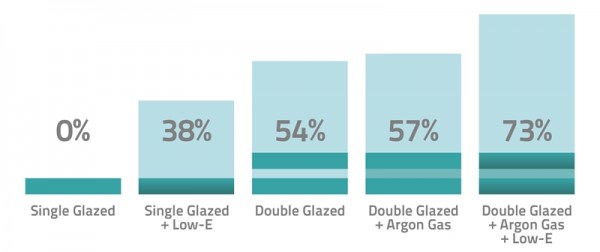
Comparative glass types – performance for heat loss reduction
Thermal breaks: A thermal break is either a resin-filled channel or polyamide strip inserted between the inside and outside aluminium profiles of your window. The thermal technology prevents heat or cold transferring from the inside frame to outside and vice versa.
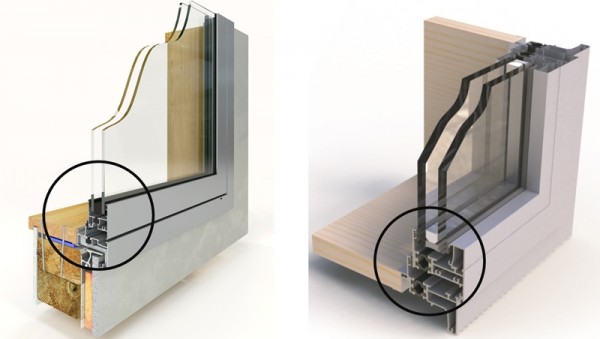
There is a variety of thermally enhanced joinery systems which add insulation to your windows and doors. The Altus Window Systems All Seasons (left) uses a 'pour and de-bridge' thermal break while the Pacific Thermal system (right) uses a 'polyamide strip' thermal break.
Part 3: Putting this all together
Now that we know the basics, let's finally answer our big question.
The best windows for a New Zealand home are those chosen to suit the unique climate of the specific area. Areas of high humidity need lots of ventilation, areas of high sun exposure can benefit from low-E coatings and sun shades, areas of extreme cold need greater thermal performance and must capture passive solar heat gain, and areas of high wind may require window designs to limit them slamming open or shut.
For advice on what windows might suit your new property, contact the Altus Window Systems team today.
